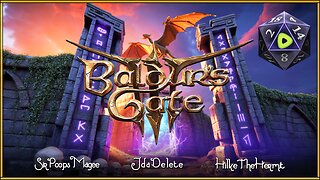Premium Only Content

The beginning of the Universe
Ladies and gentlemen,
Today, I stand before you to discuss one of the most profound and fascinating topics in human history—the beginning of the universe. Exploring its origins has captivated the minds of scientists, philosophers, and individuals seeking to unravel the mysteries of our existence. Throughout the centuries, countless theories and discoveries have shaped our understanding of how it all began.
The quest to comprehend the beginning of the universe can be traced back to ancient civilizations where creation myths attempted to explain the origins of life and the cosmos. These narratives often intertwined with religious and cultural beliefs, providing early attempts to fill the gaps in our knowledge. However, it wasn't until the advent of modern science that we began to truly understand the vastness and complexity of the universe.
In the early 20th century, groundbreaking work by scientists such as Albert Einstein and Edwin Hubble revolutionized our understanding of the cosmos. Einstein's theory of general relativity proposed that space and time are intricately intertwined, forming the fabric of the universe itself. Hubble, on the other hand, provided observational evidence for an expanding universe through the observation of galaxies moving apart from each other.
The development of the Big Bang theory marks a turning point in our exploration of the universe's origin. According to this prevailing scientific model, the universe began around 13.8 billion years ago from a singular, infinitely dense and hot point—the singularity. This momentous event unleashed an explosion of energy and matter, releasing the fundamental forces of the universe, such as gravity, electromagnetism, and strong and weak nuclear forces.
As the universe rapidly expanded, space and time began to take shape. Over time, energy transformed into matter, forming the building blocks of galaxies, stars, and planets. Through the process of nucleosynthesis, the universe began to foster the creation of elements such as hydrogen, helium, and traces of other light elements. The formation of stars and galaxies led to a universe teeming with vast cosmic structures and dynamic interactions.
While the Big Bang theory provides us with an elegant explanation of how the universe came into being, there are still unanswered questions that intrigue scientists today. These mysteries relate to what caused the initial singularity, what happened in the infinitesimally small fraction of a second after the Big Bang, and what may lie beyond our observable universe.
Scientists continue their tireless pursuit to unravel the secrets of the cosmos through innovative observations and experiments. Breakthroughs in fields like particle physics, astronomy, and cosmology bring us closer to understanding the processes that shaped the universe from its earliest moments to the present day.
As we delve deeper into the complexities of the universe, it's essential to remember that humanity's quest for knowledge has always been driven by curiosity and the desire to understand our place in the grand tapestry of existence. The study of the beginning of the universe encourages us to be in awe of the vastness and mysteries that surround us, urging us to seek answers and expand our understanding.
In conclusion, the beginning of the universe remains a fascinating subject that captivates the human imagination. Through scientific inquiry and advancements, we continue to peel away the layers of the cosmic enigma, shedding light on the origins of our existence. Let us embrace the wonders of the universe and embark on this incredible journey of discovery together.
Thank you.
-
 LIVE
LIVE
The Amber May Show
1 hour agoChristian Music Night with Amber May, Wendy Wild & Ace
154 watching -
 LIVE
LIVE
LFA TV
17 hours agoLFA TV ALL DAY STREAM - FRIDAY 8/22/25
786 watching -
 LIVE
LIVE
Amish Zaku
8 hours agoRumble Spartans August Event- Classic Halo Multiplayer
44 watching -
 LIVE
LIVE
OhHiMark1776
22 hours ago🟢08-22-25 ||||| Halo Multiplayer Rumble: No. 17 ||||| Halo MCC (2019)
68 watching -
 42:57
42:57
MattMorseTV
2 hours ago $0.28 earned🔴Canada just SURRENDERED.🔴
57.4K33 -
 LIVE
LIVE
JdaDelete
22 hours agoBaldur's Gate 3 - Episode 2 | Friday with Friends
14 watching -
 LIVE
LIVE
EzekielMaxwellVT
3 hours agoVTuber/VRumbler -Elden Ring Nightreign - TRICEPHALOS HARD MODE ROUND 2
13 watching -
 25:00
25:00
Stephen Gardner
2 hours ago🚨YES! Trump DID IT + Bombshell SCOTUS ruling!
10.4K9 -
 1:10:13
1:10:13
Edge of Wonder
4 hours ago4 Alien Species Revealed by Congressman & AI Creates ‘New Physics’
8.34K6 -
 LIVE
LIVE
Mally_Mouse
22 hours agoFriend Friday!! 🎉 - Let's Play! - Goose Goose Duck
89 watching